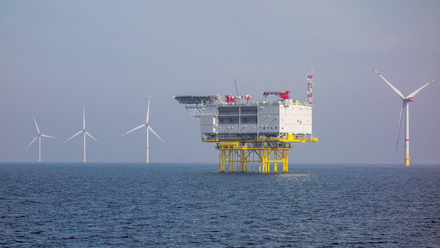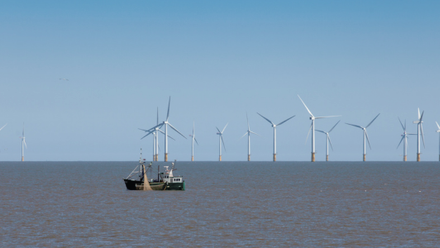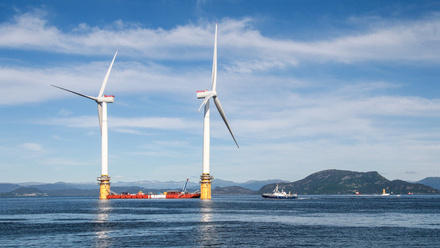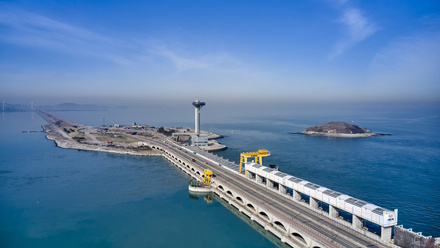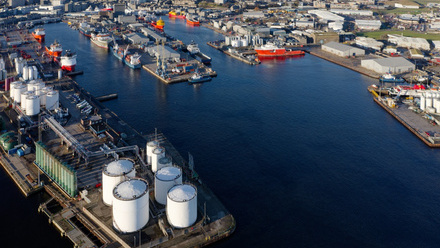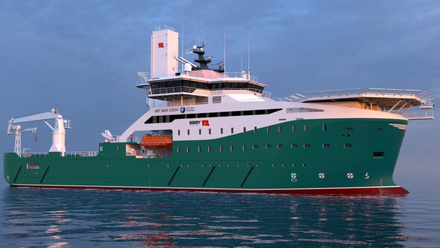Marine Contractors and the Offshore Transition: A Call for Strategic Recognition
It’s a crucial time for renewable energy and many IMarEST members are instrumental in driving the energy transition. Here, Iain Grainger MIMarEST, CEO of the International Marine Contractors Association (IMCA) takes us through a new piece of research from his organisation and explains why he is calling for marine contractors to be given strategic sector status.
At the IMCA, we’ve just published an economic impact study, in partnership with PA Consulting, that provides a timely assessment of the marine contracting sector’s role in Europe’s offshore energy future. The findings are relevant to many IMarEST members and confirm what many working in and around the offshore industries have long observed: marine contractors play a central role in enabling the infrastructure that underpins energy security, climate policy, and digital resilience.
According to the report, the sector is expected to generate more than €80 billion in gross value added (GVA) across the EU, UK, and Norway this year, supporting nearly half a million jobs. These include roles both offshore and onshore, spanning operations, engineering, project management, marine science, and vessel support. It is a workforce characterised by high skill levels and high productivity—attributes essential for delivering large-scale offshore projects safely and effectively.
But numbers alone do not capture the full picture.
Marine contractors deliver the infrastructure needed to meet Europe’s 2050 offshore wind targets—from turbines and substations to foundations and interconnectors—often in remote or technically challenging conditions. Meeting these targets will require the deployment of at least 10,000 turbines over the next 25 years. It will also demand sustained investment in heavy-lift vessels, subsea technologies, port infrastructure, and critically, a skilled workforce across multiple marine disciplines.
Currently, the sector faces several constraints. Vessel build timelines remain long, skilled labour is in high demand, and evolving regulatory frameworks for shipping fuels and emissions add complexity to investment decisions. These are not insurmountable barriers, but they do require coordinated policy support.
This is why the IMCA are advocating for the formal recognition of marine contractors as a strategic sector. Such recognition would ensure that infrastructure, regulation, training pathways, and financial mechanisms are aligned with the scale and urgency of offshore deployment. It would also reflect the sector’s increasingly broad contribution, from supporting subsea telecommunications and energy interconnectors to enabling carbon capture, environmental monitoring, and decommissioning activities.
Marine contractors do not ask for special treatment, but for strategic clarity. We are ready to invest, to innovate, and to deliver. But this cannot happen in a policy vacuum. Long-term decisions on vessels, fuels, skills, and infrastructure need long-term certainty.
The wider economic and fiscal impact is also significant. Marine contracting directly contributes more than €45 billion in GVA annually and supports over 220,000 full-time roles, rising to nearly 490,000 when indirect and induced employment is included. The sector contributes an estimated €15 billion in annual tax revenue and nearly €1 billion in visa fees. With productivity levels more than 2.5 times the European average, the sector delivers a strong return on investment to the economies in which it operates.
Working with IMarEST members
The relevance of this discussion extends well beyond those of us directly involved in offshore construction, so I put out a call to IMarEST members for partnerships that will help strengthen the sector.
Marine contractors rely on and work alongside naval architects, marine surveyors, environmental scientists, port engineers, legal advisors, and vessel designers. Our work is interdependent. The success of offshore infrastructure projects draws on skills and knowledge from across the marine professions.
There is also a forward-looking dimension that will resonate with educators and early-career professionals. As offshore activity increases, so too will the need for expertise in areas such as digital systems integration, sustainable marine engineering, robotics, and regulatory compliance. In short, the sector is evolving—and with it, the opportunity for individuals from a range of marine backgrounds to shape its future.
At IMCA, we are committed to ensuring that this transition is grounded in technical excellence, safety, and environmental responsibility. Marine Contractors are ready to support Europe’s clean energy and climate goals, but this must be part of a long-term industrial strategy. From emissions regulation to infrastructure planning, clarity and alignment will be essential.
Europe possesses the knowledge, capability, and ambition to lead in offshore development. What is needed now is a shared commitment to create the conditions in which this work can be delivered reliably, responsibly, and at the pace required.
The offshore transition is not something one sector can deliver alone,” Grainger concluded. “It demands coordination across government, industry, academia, and the supply chain. Marine contractors are ready to play their part; we now need partners who share that readiness.

